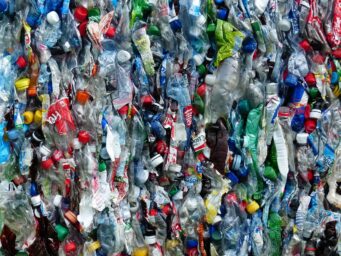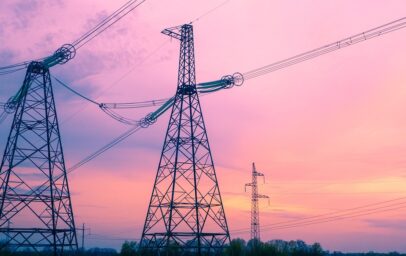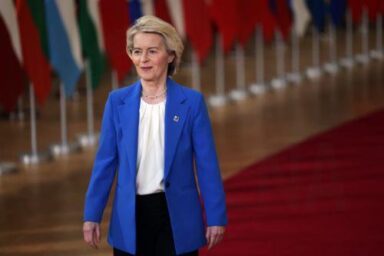At Monday’s AGRIFISH Council meeting in Luxembourg, Ireland, supported by Spain and Poland, pressed the EU to act against overfishing and defend Northeast Atlantic pelagic stocks. With EU fleets shrinking and third-country overfishing continuing, Brussels was urged to use every tool to protect Europe’s waters.
For Ireland, the situation has gone from bad to worse, with mackerel quotas and related gains falling sharply for several years. A recap presented at Monday’s Council meeting underlined a 26 percent drop in mackerel stocks immediately after Brexit, a 22 percent reduction in 2025, and a 70 percent reduction projected for 2026. Not small percentages. These cuts threaten local coastal economies dependent on fishing and processing industries, highlighting the delicate balance between sustainable management and economic livelihoods. The figures underscore the need for coordinated action at EU level.
Following a brief introduction by Danish Minister for Food, Agriculture and Fisheries Jacob Jensen, it was Ireland’s Minister of State for the Marine, Timmy Dooley, who put the emphasis on declining fish stock numbers, calling the issue critically important:
“The recent scientific news regarding mackerel has sent shockwaves through the Irish fishing community. Mackerel is Ireland’s most important fishery economically and is the cornerstone of the Irish pelagic fleet and the processing industry. The reductions on foot of scientific advice are compounding reductions already suffered (…) Ireland supports the EU in responsibly setting our quotas for this stock. However, these efforts are in vain if we stand by and let other coastal states continue their reckless behaviour.”
You might be interested
Challenges in shared waters
Across EU waters — including the Baltic, North Sea, and Atlantic — overfishing remains a critical concern despite management plans designed to stabilise stocks. Ireland’s minister noted that while the EU sets quotas for member states, third countries often act unilaterally, undermining conservation efforts. Mr Dooley was clear about the main offenders: Norway, the Faroe Islands, and Iceland. Each country (or autonomous territory) set its own limits and often ignored scientific recommendations. Norway, despite being a close EU partner, overfished shared mackerel stocks and made collective management far more difficult.
“These are now seeing the inevitable outcome of many years of overfishing,” Ireland’s minister said. He reiterated that Ireland had repeatedly called out third countries like Norway for setting “unjustified and unsustainable quotas.” He suggested that Norway, as a close EU partner, was perhaps the worst offender, saying that when it came to fisheries, cooperation “did not extend very far.”
Calls for Commission action
Ireland’s note to the Council explicitly calls on the European Commission to use all instruments at its disposal to address these challenges. The submission urges enforcement of sustainable quotas, stronger oversight of third-country compliance, and engagement with international partners to prevent overfishing. Spain and Poland’s support signals broader concern within the EU over maintaining healthy fish stocks and protecting the economic interests of member states. The note reflects a push for proactive, rather than reactive, management — emphasising that without decisive EU intervention, the situation will only deteriorate further.
Ireland supports the EU in responsibly setting our quotas for this stock. However, these efforts are in vain if we stand by and let other coastal states continue their reckless behaviour. – Timmy Dooley, Ireland’s minister of State for the Marine
The note received significant backing not only from Poland and Spain but also from others, such as the Netherlands. Commissioner for Fisheries Costas Cadis also underlined that he shared deep concern about key North Atlantic pelagic stocks and the serious threat posed both to sustainability and to the livelihoods of fishers and coastal EU communities. He made clear that the issue had his and his team’s full attention.
“I will continue to address this matter with my counterparts, including with the UK very shortly, to press for solutions in the sector with member states (…) to identify constructive and sustainable approaches that protect the stocks and serve their long-term rebuilding. Reaching comprehensive sharing agreements for mackerel, blue whiting and Atlantic herring is urgent.”

Navigating bad behaviour
Ireland’s note suggests that enforcement and diplomatic engagement are essential tools for the Commission, while also highlighting the need for harmonised, science-based quota setting across jurisdictions to ensure long-term sustainability.
The Commissioner added that he had heard calls to use the various tools in the EU’s “toolbox,” including the recently amended regulation on non-sustainable fishing by third countries. He said he would listen to all sides — for example, at the upcoming North Western Waters Group (NWWG) meeting next month.
“I will carefully follow the outcomes of the meetings, but let me be clear: the EU remains committed to constructive dialogue and diplomacy, but we also need to protect our interests firmly,” he said. “Those who previously benefitted from unilateral increases and are now requesting that the EU reduce its legitimate share — we cannot accept that.”
Implications for coastal economies
The decline in Ireland’s pelagic fleet serves as a reminder that sustainable fisheries are directly linked to economic stability. Reduced quotas affect not only fishing vessels but also processing facilities, employment, and the wider coastal economy. The note underscores that effective EU-level coordination and pressure on third countries are necessary to prevent similar declines elsewhere. Maintaining robust, sustainable stocks is critical for future food security, trade, and economic resilience within member states.
The EU remains committed to constructive dialogue and diplomacy, but we also need to protect our interests firmly – Costas Cadis, Commissioner for Fisheries
As the AGRIFISH Council convenes, the discussion of Ireland’s note represents more than a routine policy debate. It’s a test of the EU’s ability to balance environmental responsibility with economic needs — and to engage third-country partners in a shared resource framework. How the Commission responds, and what enforcement measures are adopted, could define the trajectory of pelagic fisheries management at a key moment for both sustainability and EU cohesion in fisheries policy.











